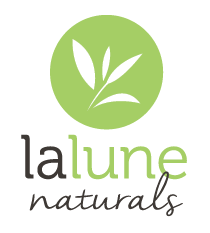Your body is what you put into it. So the healthier the nutrients, the better your body performs. Now, you already know sugar isn’t great for your weight. There’s a reason few diets include boxes of cookies and pints of ice cream. However, sugar doesn’t just affect your waistline but your skin as well. So if you’re currently battling acne breakouts or simply don’t have a glowing complexion, chances are sugar could play a partial role in the problem.
What Exactly is Sugar?
Before understanding why sugar is bad for your skin, you need to know what sugar actually is. When looking for the nutrients portion of your food packaging, sugar falls under “carbohydrates.” This is because sugar is a simple carb, similar to that of white bread and pasta (as opposed to complex carbohydrates, which are 100% whole wheat grains).
Your body breaks down simple and complex carbs differently. Simple sugar breaks down into glucose. An increase in glucose increases your insulin level. This sudden spike in insulin causes a quick burst of inflammation throughout your entire body (it’s why it feels like you have a sudden burst of energy after consuming sugar, but then crash hard).
Inflammation’s Attack on the Body
The true culprit to your sugar-fueled skin problems is inflammation. Inflammation creates a specific enzyme which leads to a break down in your skin’s collagen. Collagen is what gives your skin its elasticity. As your body ages, collagen begins to break down and does not reproduce as quickly, which is why the body’s skin begins to wrinkle and sag. Sugar essentially has the same effect on your body as aging.
Most of these issues are reversible once you kick sugar. However, some digested sugar may attach itself to the collagen permanently. Think of this like weight pulling down on an elastic band. The continued exposure to sugar and the inflammation enzyme may result in your body developing an insulin resistance, leading to an increase in hair growth, sagging skin and dark patches around the body.
The Cause of Acne
Everyone reacts to what they put into their bodies a little bit differently. You may seem to break out a few days after munching down on movie theater candy, while nothing happens to your friend. Yet on the flip side, your friend breaks out after drinking chocolate milk and you’re good to go. Much of this has to with your body and how your hormones react.
Hormones, especially those running through a teenage body, lead to an increase in oil production (better known as sebum production within the skin cells). Other boosts in hormone may occur when pregnant, due to medication or from a number of other factors. When dead skin cells block the pores of your skin, the sebum has nowhere to go, which leads to a pimple. As these blockages usually do not occur on a single pore basis, it leads to a larger outbreak.
So what does sugar have to do with any of this? The inflammation caused by simple sugar leads to an increase in sebum production and additional skin cell development. As you now have more oil and a greater potential for dead skin flakes, it dramatically increases your chance of breaking out. By ditching the sugar, you’ll avoid inflammation, cut down on sebum production and, in turn, likely reduce skin outbreaks at the same time (on top of the other health benefits).
Outside of pleasing your sweet tooth, there are few benefits to consuming sugar. Cutting sugar out of your diet may seem difficult at first, but as your body adapts to not having the simple carbohydrate in the bloodstream, you’ll find it easier and easier to continue a healthy life, sugar-free. To help take your skin to the next level, make sure to check out our latest skincare products.


0 Comment